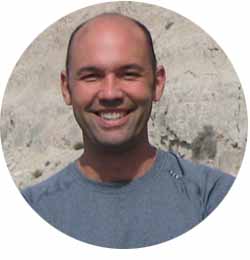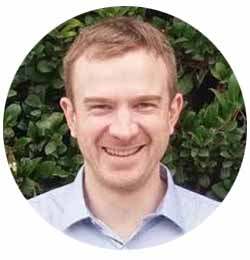Tim Roughgarden And David Knowles Join The Department
The computer science department adds two more faculty members. With research and teaching experience in algorithmic game theory, machine learning, and computational genomics, these new CS faculty are facilitating research and learning in their respective computer science fields.
Tim Roughgarden
Professor, Computer Science
Postdoctoral researcher, UC Berkeley, (2004)
PhD Computer Science, Cornell University, (2002)
MS Mathematics, Cornell University, (2002)
MS Computer Science, Stanford University (1998)
BS Applied Mathematics, Stanford University (1997)

Tim Roughgarden works on algorithmic game theory and on the design, analysis, applications, and limitations of algorithms. He comes to Columbia from Stanford University, where he was a computer science professor for 15 years.
Much of his recent research explores the intersection of computer science and economics, with applications ranging from network routing to online advertising to spectrum auctions. Looking at economics through the computer science lens motivated a number of new questions that had gone unasked, shared Roughgarden. Some topics he has worked on include the price of anarchy (that is, approximation guarantees for game-theoretic equilibria), auction and mechanism design theory, and social network analysis. Other subjects that are on his radar are contract theory and blockchains.
In the fall Roughgarden will teach a randomized algorithms course, as well as an undergrad class on the intersection of computer science and economics that will cover everything from cryptocurrencies, auctions for advertising, and routing protocols. He is toying with the idea of a more advanced class on the foundations of blockchain technology with a particular emphasis on game theory.
He is in the midst of building up his research group, and has one new PhD student and one new postdoc arriving in the fall.
David Knowles
Assistant Professor, Computer Science
Core Faculty Member, New York Genome Center
Postdoctoral researcher, Stanford University (2018)
PhD Machine Learning, University of Cambridge, (2012)
MSc Bioinformatics and Systems Biology, Imperial College London (2008)
MEng Engineering, University of Cambridge (2007)

David A Knowles holds a joint appointment as a core faculty member at the New York Genome Center.
Knowles’ interests lie in the interface between Bayesian inference and machine learning. While at his postdoc at Stanford a lot of the work he did applied Bayesian statistical techniques in computational genomics.
Part of his research looked at questions around how genetic differences between people influence their disease risk. One study examined how chemotherapy patients could be sensitive to treatment depending on their genetic makeup, in terms of cardiac side effects. Knowles is also interested in various neurological diseases – ALS, autism, Alzheimer’s – and how to study these diseases using patients’ genetic data and patient-derived model systems such as induced neurons and organoids.
“There is some work in this area, but I think it is particularly important in biology where you want to understand how much uncertainty there is in the model and in your predictions because (like with the chemotherapy and cardiac side effects research) we want to know how certain we are that the patient will have a cardiac side effect if given a chemotherapy drug,” shared Knowles.
In the fall he will teach a class on how modern machine learning is used in genomics. The Knowles Lab opened in January and is looking for grad and postdocs. Postdocs have the option to work in the wet lab and computational side.

